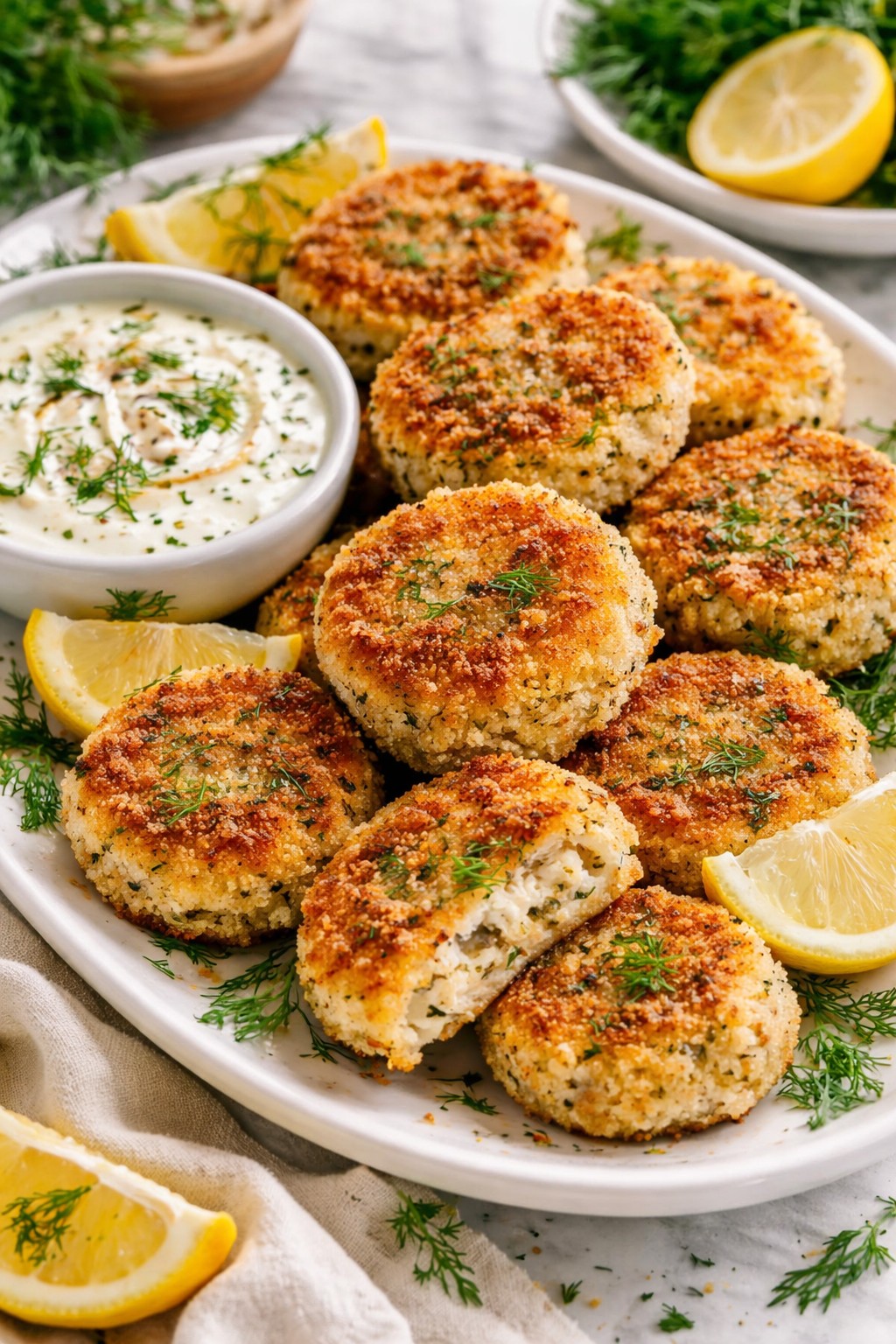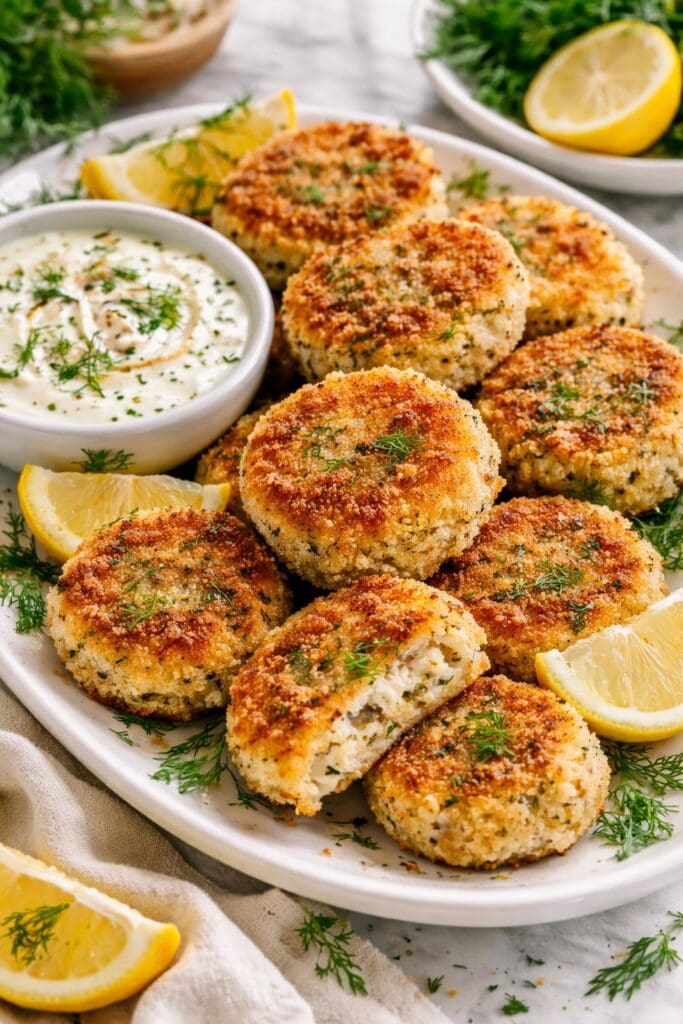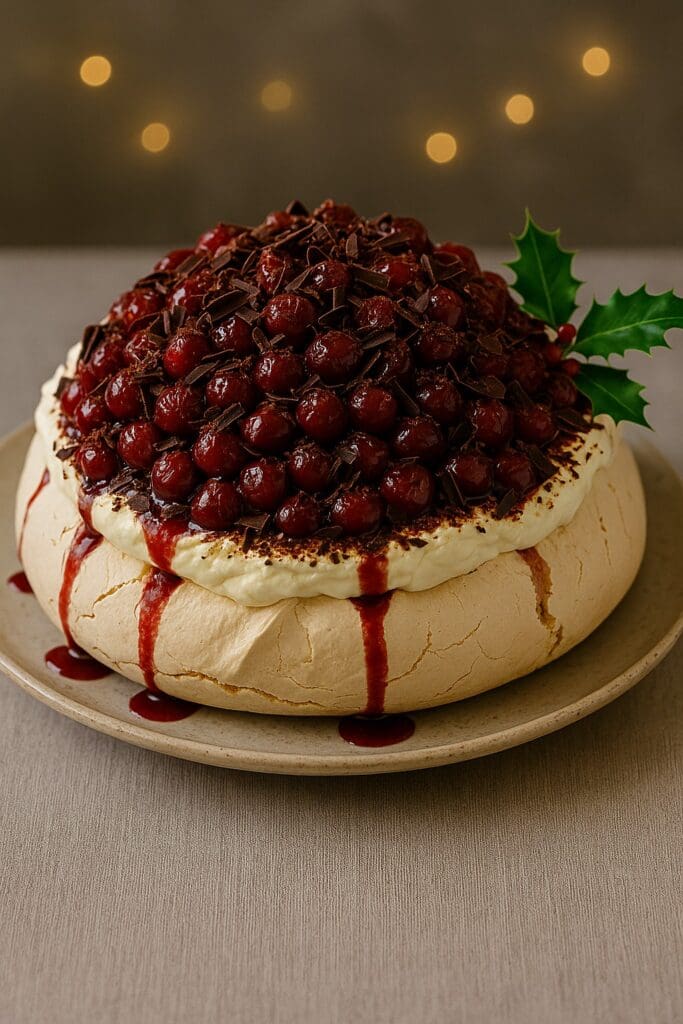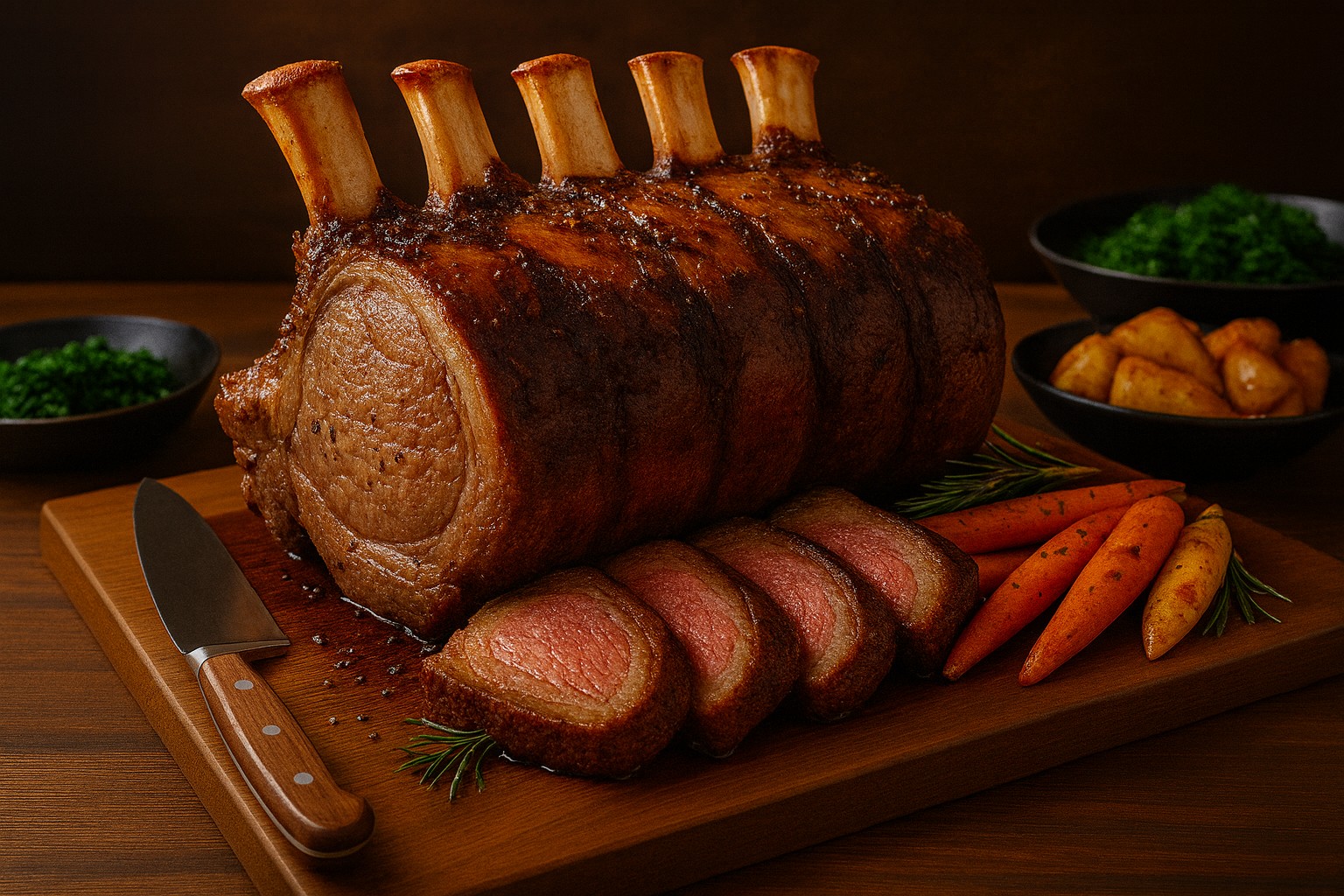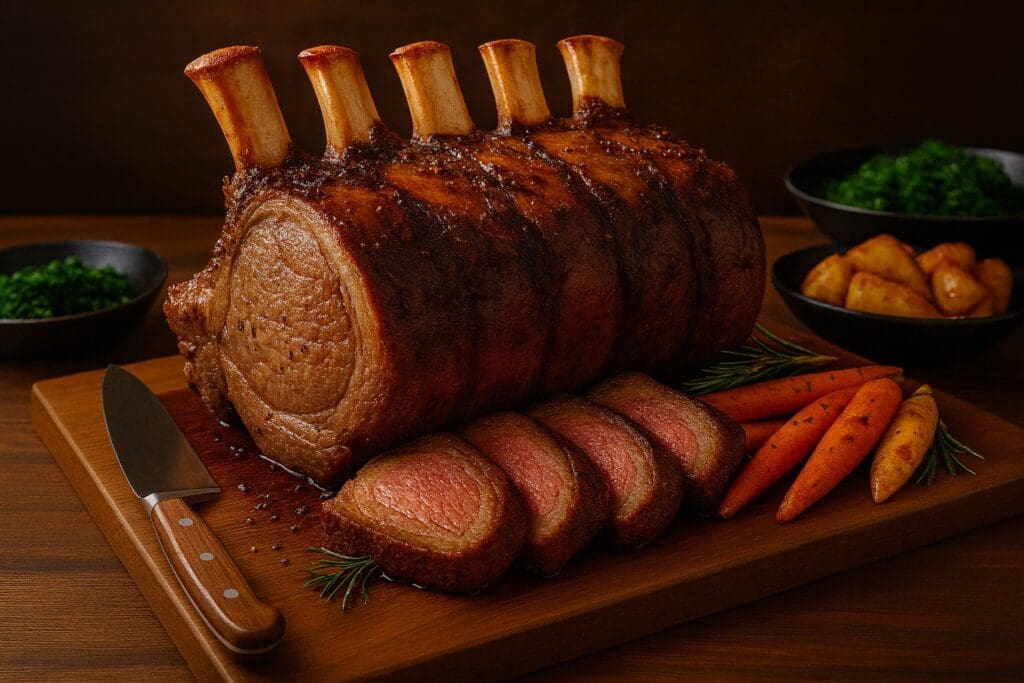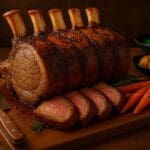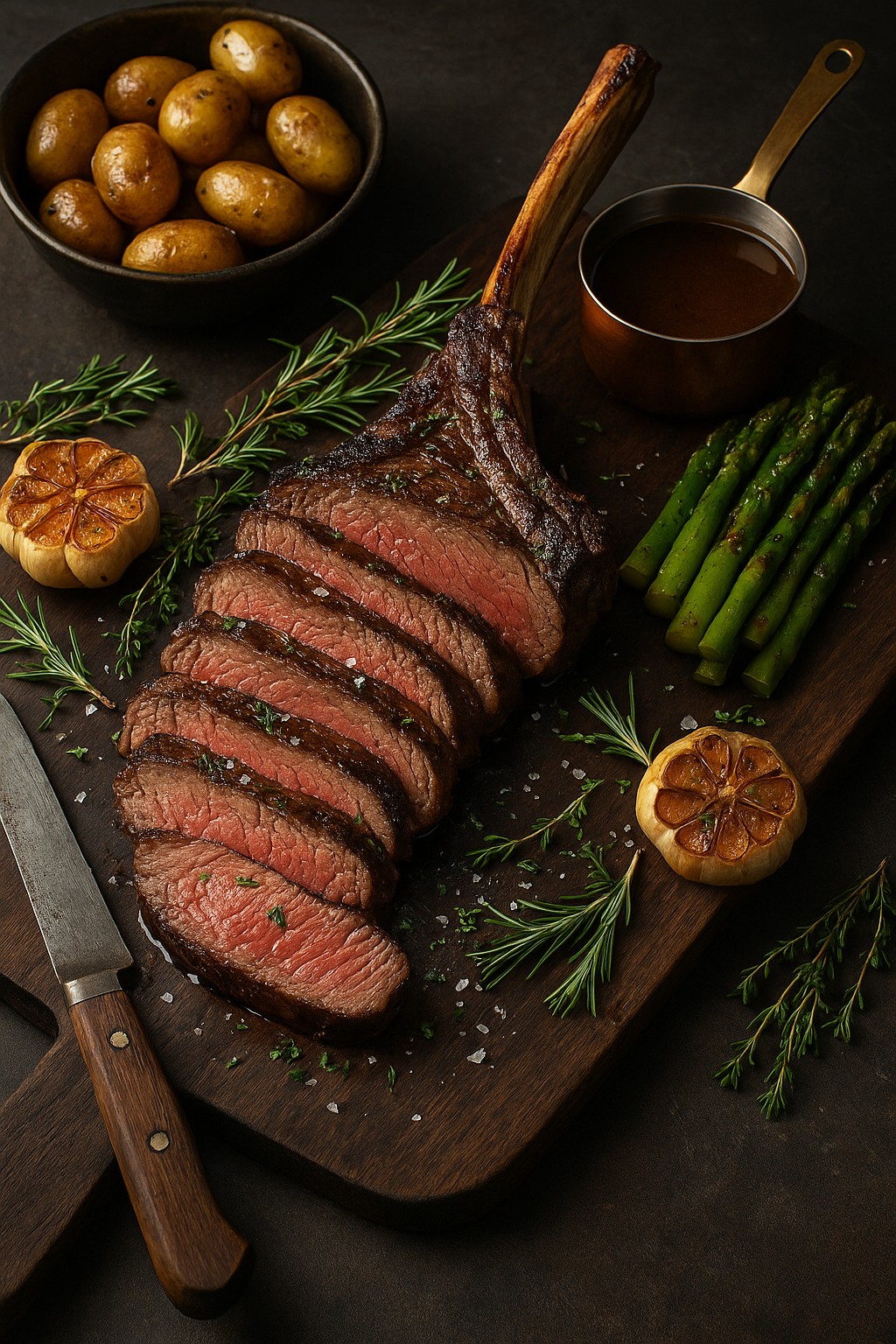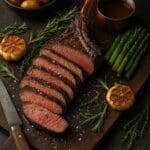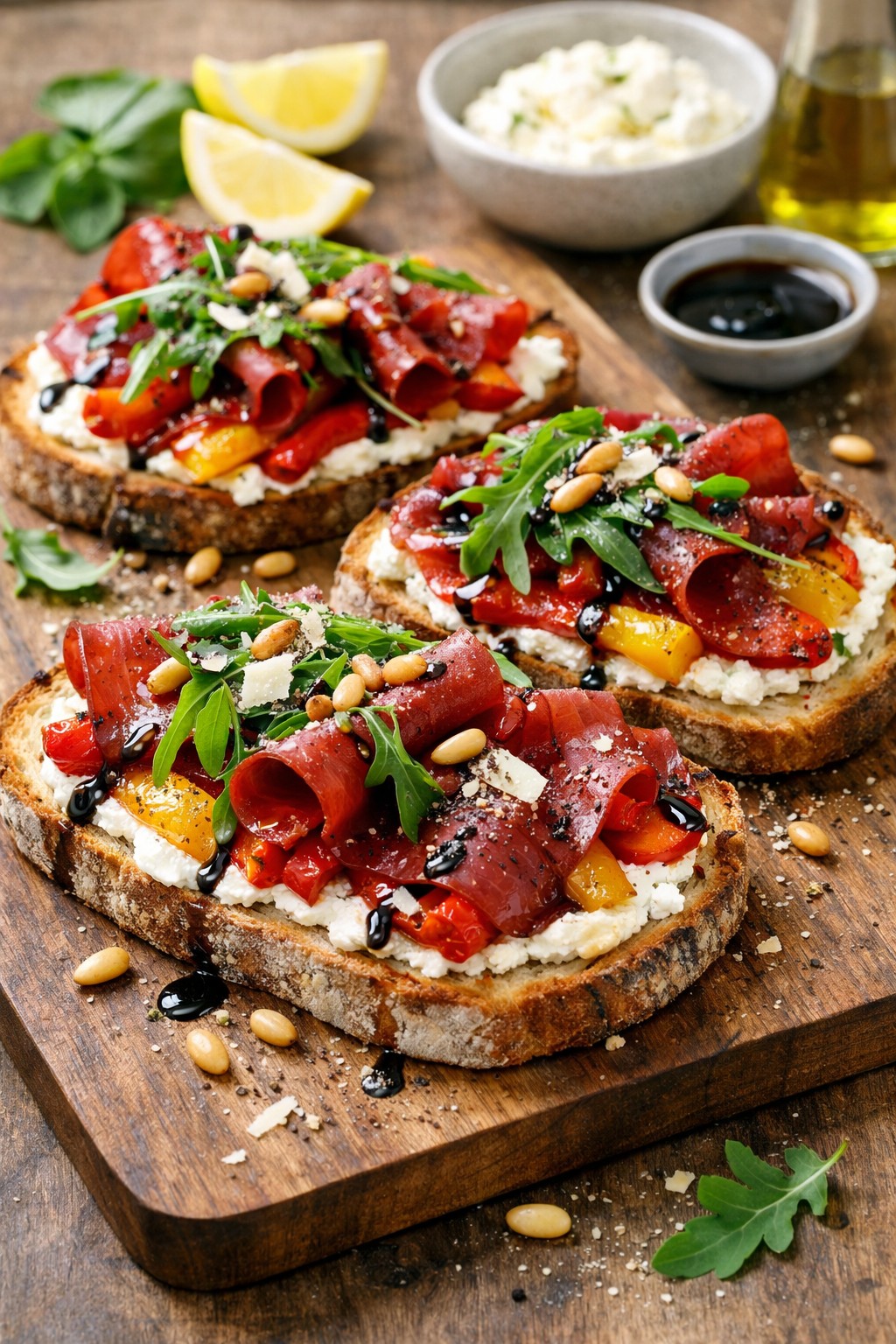
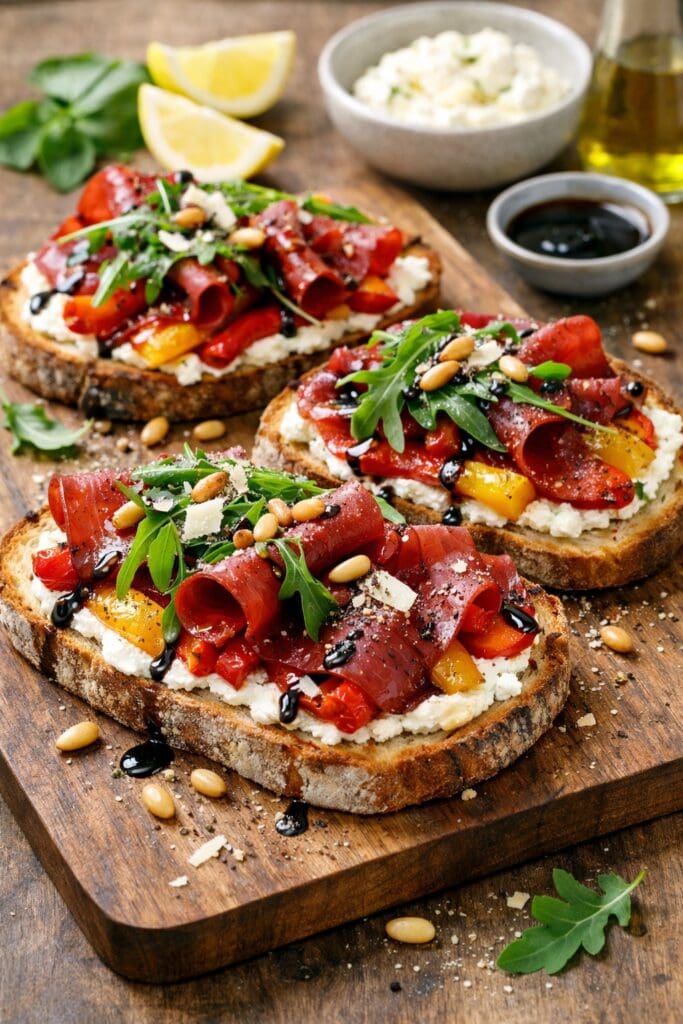
If you’re searching for a recipe that feels luxurious yet effortless, this Italian bresaola tartine with roasted sweet peppers is a perfect choice. Light, colourful and packed with flavour, it combines silky cured beef, naturally sweet roasted peppers, creamy lemon ricotta and peppery rocket. These ingredients are all layered on crisp toasted sourdough.
This is the kind of dish that looks at home on a restaurant menu, yet is simple enough to prepare in your own kitchen. It is ideal as a starter, light lunch, or elegant sharing platter. It proves that when ingredients are high quality, less really is more.
The History of Bresaola
Bresaola is a traditional Italian cured meat with a long and proud heritage rooted in the mountainous regions of Northern Italy. It is particularly found in Valtellina in Lombardy. Unlike many cured meats made from pork, bresaola is produced from lean beef, making it unique within Italian charcuterie.
The origins of bresaola date back several centuries. Preserving meat was essential for survival through long Alpine winters. Local farmers developed a method of air-drying beef using salt, spices and mountain air. This method created a product that was flavourful, long-lasting and easy to store. The cold, dry climate of the Alps played a crucial role in shaping bresaola’s distinctive character. Learn more about the history of bresaola.
Traditional Production Methods
Authentic Italian bresaola is made from carefully selected cuts of beef. Typically, the top round is used. The meat is trimmed of fat, lightly salted, and seasoned with a blend of spices. These spices may include juniper, garlic, cinnamon and black pepper. The meat is then air-dried for several weeks to months, depending on size and tradition.
Unlike heavily smoked or fermented cured meats, bresaola is prized for its clean, delicate flavour, soft texture and deep ruby-red colour. The curing process enhances the natural taste of the beef without overpowering it. This results in a refined and elegant product.
Bresaola della Valtellina PGI
One of the most famous and protected versions is Bresaola della Valtellina IGP (PGI). It received Protected Geographical Indication status from the European Union. This designation recognises the product’s historical importance. It also ensures that authentic bresaola is produced according to strict regional and quality standards.
Today, bresaola remains a symbol of Italian craftsmanship and culinary tradition, enjoyed both in Italy and around the world.
How to Make Italian Bresaola Tartine with Roasted Sweet Peppers
This Italian bresaola tartine recipe is quick to prepare. It showcases the delicate flavour of premium sliced bresaola paired with sweet roasted bell peppers, creamy lemon ricotta and fresh rocket. With minimal cooking and simple assembly, it delivers elegant results without complexity. Follow the step-by-step ingredients and instructions below to create a light starter, refined lunch or impressive sharing dish. These steps highlight the quality of the ingredients:

Bresaola, Roasted Sweet Pepper & Rocket Tartine with Lemon Ricotta
Ingredients
For the Tartines:
- 70 g Gran Bosca Italian Bresaola, thinly sliced
- 500 g fresh sweet bell peppers (mixed colours if available)
- 4 thick slices sourdough or rustic country bread
- 200 g ricotta
- 1/2 Zest and juice of ½ lemon
- Olive oil
- Freshly ground black pepper
- Sea salt
- A handful of rocket (arugula)
- Optional: toasted pine nuts or shaved Parmesan
Optional Garnish:
- Balsamic glaze
- Fresh basil or parsley
Instructions
Roast the Sweet Bell Peppers:
- Preheat your oven to 220°C / 200°C fan / Gas Mark 7.
- Cut the sweet peppers into thick strips, remove core and seeds.
- Toss in a drizzle of olive oil, a pinch of salt and pepper.
- Spread on a baking tray and roast 15–20 minutes, turning once, until tender and slightly charred.
- Remove from oven and set aside to cool slightly.
Prepare the Lemon Ricotta:
- In a small bowl, combine ricotta with lemon zest, lemon juice and a pinch of black pepper.
- Stir well until creamy and bright — season to taste with salt if needed.
Toast the Bread:
- Lightly brush each slice of sourdough with olive oil.
- Lightly brush each slice of sourdough with olive oil.
Lightly brush each slice of sourdough with olive oil:
- Lightly brush each slice of sourdough with olive oil.
- Arrange roasted sweet pepper strips evenly on top.
- Drape slices of bresaola over the peppers.
- Top with a handful of fresh rocket.
- Drizzle with a little extra olive oil and, if using, a balsamic glaze for sweet-tangy richness.
- Drizzle with a little extra olive oil and, if using, a balsamic glaze for sweet-tangy richness.
Notes
Nutrition
Roasted Sweet Bell Peppers: Colour, Sweetness and Balance
Roasting fresh premium sweet bell peppers transforms them completely. Heat intensifies their natural sweetness, softens their texture and adds subtle caramelised notes. Their vibrant red, yellow and orange tones also bring visual appeal. As a result, the tartine is as striking as it is delicious. Find out how to roast peppers perfectly
The sweetness of the peppers balances the savoury depth of the bresaola, while their softness contrasts beautifully with crisp sourdough and fresh rocket. This harmony of flavours and textures is what makes the recipe so satisfying.
Serving Suggestions
These Italian bresaola tartines with roasted sweet peppers are extremely versatile. They can be served in a variety of ways, making them suitable for casual meals, refined dining and professional catering menus.
For a light lunch or everyday meal, serve the tartines whole with a crisp green salad. Use rocket, watercress or mixed leaves, lightly dressed with lemon juice and extra virgin olive oil. Adding cherry tomatoes or shaved fennel brings freshness and texture. This balances the savoury bresaola and sweet roasted peppers.
As a starter, cut the tartines into smaller portions. Present them on a sharing platter with olives, marinated vegetables or shaved Parmesan. This works beautifully for dinner parties, festive menus and Italian-inspired entertaining. It offers a refined appetiser that feels indulgent without being heavy.
For grazing boards and buffets, slice the tartines into bite-sized pieces and arrange alongside cheeses, charcuterie, crusty bread and dips. Their bold yet balanced flavours make them ideal for parties, celebrations and casual entertaining. Meanwhile, their visual appeal adds colour to any spread.
For a more contemporary or lower-carb option, omit the bread and serve the bresaola, roasted peppers and lemon ricotta layered over fresh rocket leaves. Finish with a drizzle of olive oil and a squeeze of lemon. This variation is perfect for lighter dining or summer menus.
To elevate the dish further, consider finishing with toasted pine nuts, fresh basil, cracked black pepper or a light drizzle of balsamic glaze. These small additions enhance flavour while keeping the focus on the quality of the ingredients.
Star Ingredients
At the heart of this recipe are premium Gran Bosca Italian Bresaola and fresh premium sweet bell peppers, both available to buy from Nicol Retailer Limited. The bresaola is expertly air-dried to deliver a delicate, savoury flavour with a tender texture, making it ideal for light starters, lunches and Italian-inspired dishes. Paired with naturally sweet, vibrant bell peppers, these high-quality ingredients offer consistent freshness, flavour and reliability. Whether you’re cooking at home or sourcing ingredients for hospitality and catering, Nicol Retailer Limited provides trusted products that elevate simple recipes into something special.

